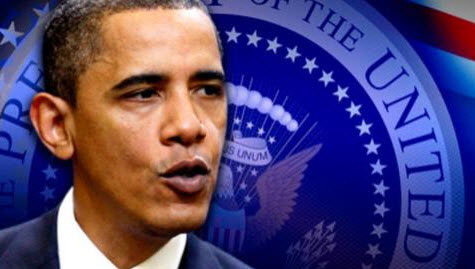
[HOME ] [ABOUT] [PHOTOS] [VIDEO] [BLOG] [HOUSTON] [TEXAS] [U.S. NEWS] [WORLD NEWS] [SPORTS] [POP CULTURE] [CONTACT]
Obama's Presidential Memorandum-Insider Threat Policy

by Joseph Earnest November 26, 2012
Newscast Media WASHINGTON, D.C.—While Americans around the country were preparing for Thanksgiving and the Black Friday mayhem, a memorandum was being circulated to department heads within the executive branch, directing them to deter, detect, and mitigate actions by employees who might be "insider threats" to national security. It is obvious that Obama conducted an investigation that prompted him to issue this directive called the National Insider Threat Policy and Minimum Standards for Executive Branch Insider Threat Programs.
The memorandum was short, with only three paragraphs, and vaguely identified what some of those "insider threats" could be:
"These threats encompass potential espionage, violent acts against the Government or the Nation, and unauthorized disclosure of classified information, including the vast amounts of classified data available on interconnected United States Government computer networks and systems," the memo said.
Click here to read the Executive Branch Insider Threat Memorandum. (pop-up)
The memorandum comes as no surprise, because before its issuance, a bill was written that grants government agencies authority to conduct "warrantless" email searches, including emails stored on a remote server. (pop-up)
This would be in direct contravention to the Constitution's Fourth Amendment that prohibits illegal searches and seizures. The Supreme Court has previously ruled:
"The evidence obtained here in violation of appellant's Fourth Amendment rights, as well as any evidence derived therefrom, should have been suppressed." (Alderman v. United States, 394 U.S. 165, 171, 89 S. Ct. 961, 22 L. Ed. 2d 176 (1969)).
In Miranda v. Arizona 384 U.S. 436, 491 (1966) the United States Supreme Court ruled: "Where rights secured by the U.S. Constitution are involved, there can be no rule-making or legislation which would abrogate them."
Bottom line, if you don't want your electronic communication to be read or phone calls to be eaves-dropped by feds, you'll have to conduct personal business the way our parents did—in person, by postal mail, or the way golfers do—on the golf course.
|
|
Join the Newscast Media social networks
for current events and multimedia content.
Copyright© Newscast Media. All Rights Reserved. Terms and Privacy Policy